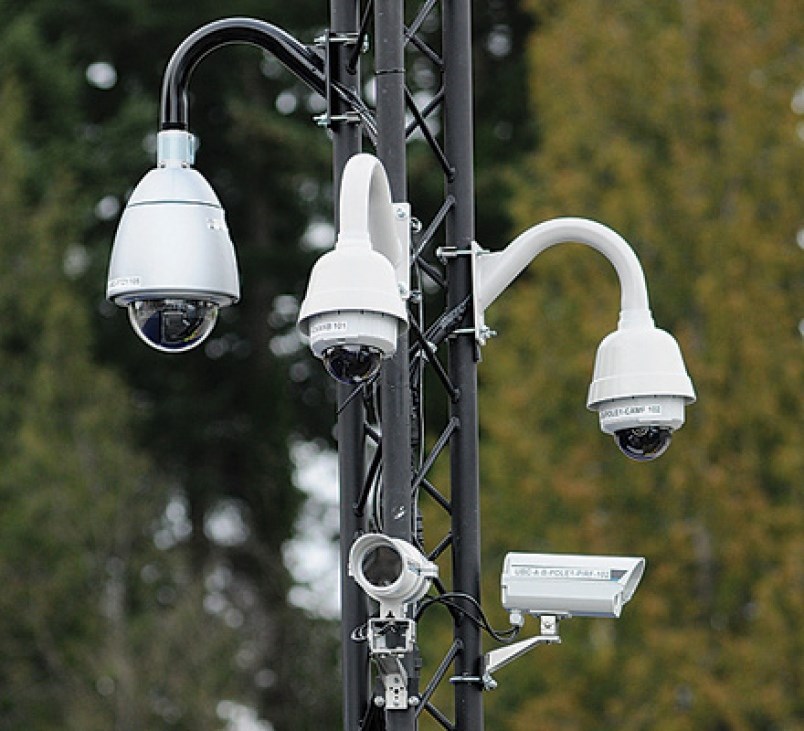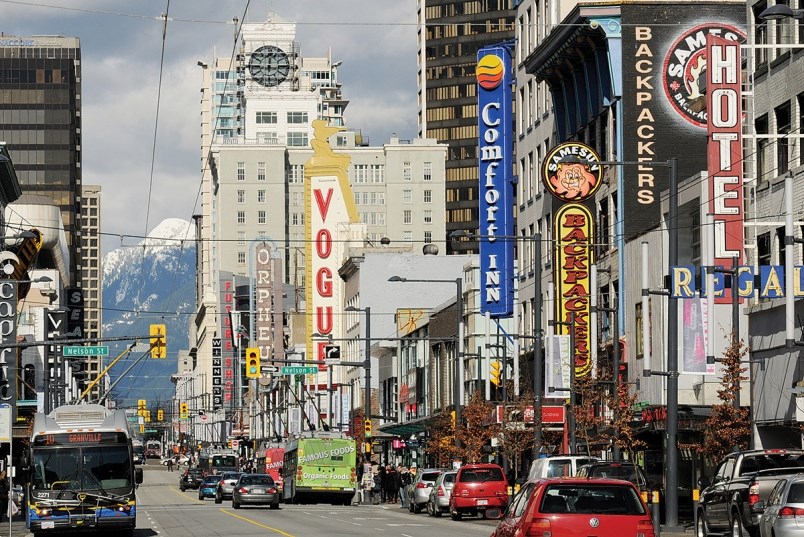I ran into John Teti the other day at city hall.
Who’s John Teti?
If you were around more than a decade ago, and paid attention to the violence and disorder occurring on the Granville strip, then his name would be familiar to you.
Teti was the chairperson of Barwatch, the advocacy group for more than 20 downtown bars and clubs. He always made for good quote when I asked him about the fights, the stabbings and shootings happening in what city officials call the Granville entertainment district, which runs from Nelson Street to West Georgia Street.
Here’s a taste from a Dec. 7, 2006 story: "This is not something that's a new phenomenon and suddenly raised its ugly head when the bars opened until three. I mean Granville Street has been a battleground, in terms of testosterone, since the 1950s, probably since the '40s."
Teti isn’t doing the talking these days for Barwatch, but was at city hall on Feb. 21 to support the organization’s new chairperson, retired Vancouver police officer Curtis Robinson, who spoke to council about violence on the Granville strip.
My first thought: This has become a tiresome issue for all involved, including Teti and Robinson, the cops, bar owners, business associations and even reporters, whose stories from more than a decade ago could be re-published today with very few changes to the copy.
Sadly, violence on the strip is still a reality and got amplified with the Jan. 27 stabbing death of Kalwinder Thind outside the Cabana Lounge in the 1100-block of Granville St. Thind, 23, was trying to break up a fight.
His death sparked NPA Coun. George Affleck to renew his call for a city plan to address the violence and public disorder, including redesigning the street and the immediate installation of security cameras on Granville.

Teti requested the cameras more than a decade ago. He also asked for late-night transit on the weekends, for cab companies to take customers beyond city limits and to jack up the fines for fighting, as Robinson requested in his presentation to council.
So why hasn’t anything changed?
In short, the city says it’s working on it.
Some of that work is being conducted by a safety and security committee comprised of city staff, people from the bar industry, downtown businesses, the police department, Vancouver Coastal Health and community organizations.
That committee is studying the city’s liquor policy review report that went before council in June 2017. That report made several recommendations, including extending the moratorium on adding more liquor seats to the strip and piloting a “last entry” program to manage crowds lined up outside bars and clubs.
Here’s some more insight from that report: “Few establishments such as art galleries or non-liquor focused venues have emerged to draw a wider range of people. Ongoing high incidents of crime and violence require additional weekend policing, which has an annual cost of $1.1 million.”
Expect an update to council in April.
City staff is also looking at whether security cameras should be installed on the strip.
Expect a report to council by June and ensuing debate on the merits of the technology. Expect the B.C. Civil Liberties Association to weigh in again, taking a position held by B.C.’s Office of the Information and Privacy Commissioner.
“We must learn from the experience in other jurisdictions, such as the UK, where over 6 million cameras (one for every 10 people!) have not significantly reduced crime in urban centres,” the commissioner’s office said in a statement released last month. “Cameras are particularly poor at deterring violent crime, as those acts occur spontaneously and the perpetrators are not concerned with getting caught, on video or otherwise.”
Regardless of what is recommended or not recommended, or acted upon or not acted upon, it’s evident something needs to shift.
That was made clear in a Feb. 20 memo to mayor and council from Kaye Krishna, the city’s general manager of development, buildings and licensing.
Krishna wrote that VPD data shows “violence and disorder in the [Granville entertainment district] have not decreased over the last five years (2013-2017) and the [district] continues to have the highest number of incidents among Vancouver’s downtown areas in late night hours.”
Added Krishna: “Violence and general disorder remains a serious issue [in the district], particularly on weekends, and staff do not believe that any of the ideas on the table will seriously mitigate those issues in the immediate term.”
Time, apparently, for some new ideas.
@Howellings



